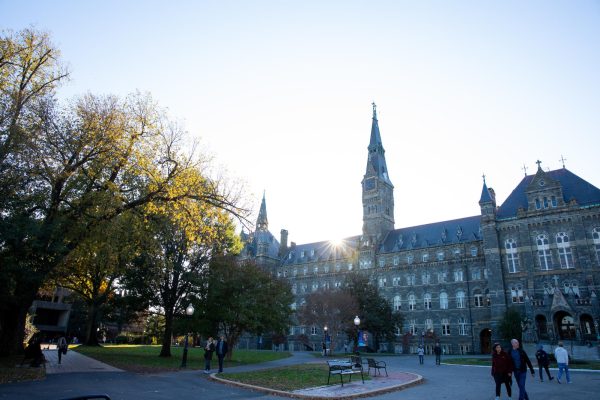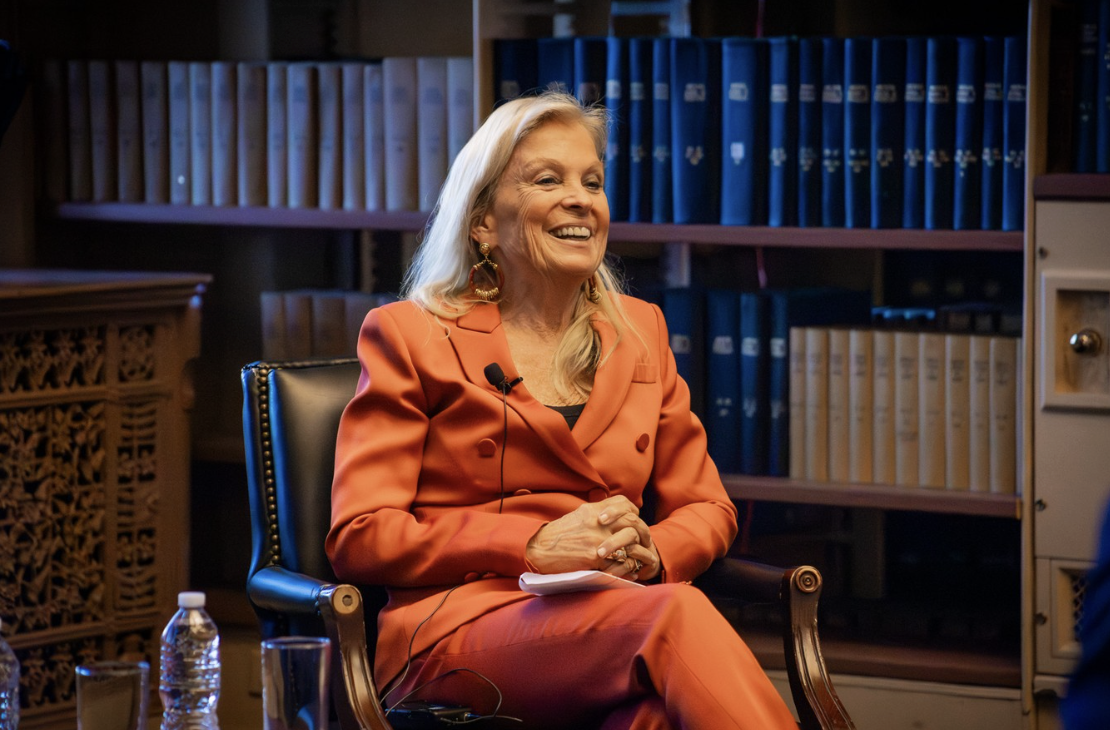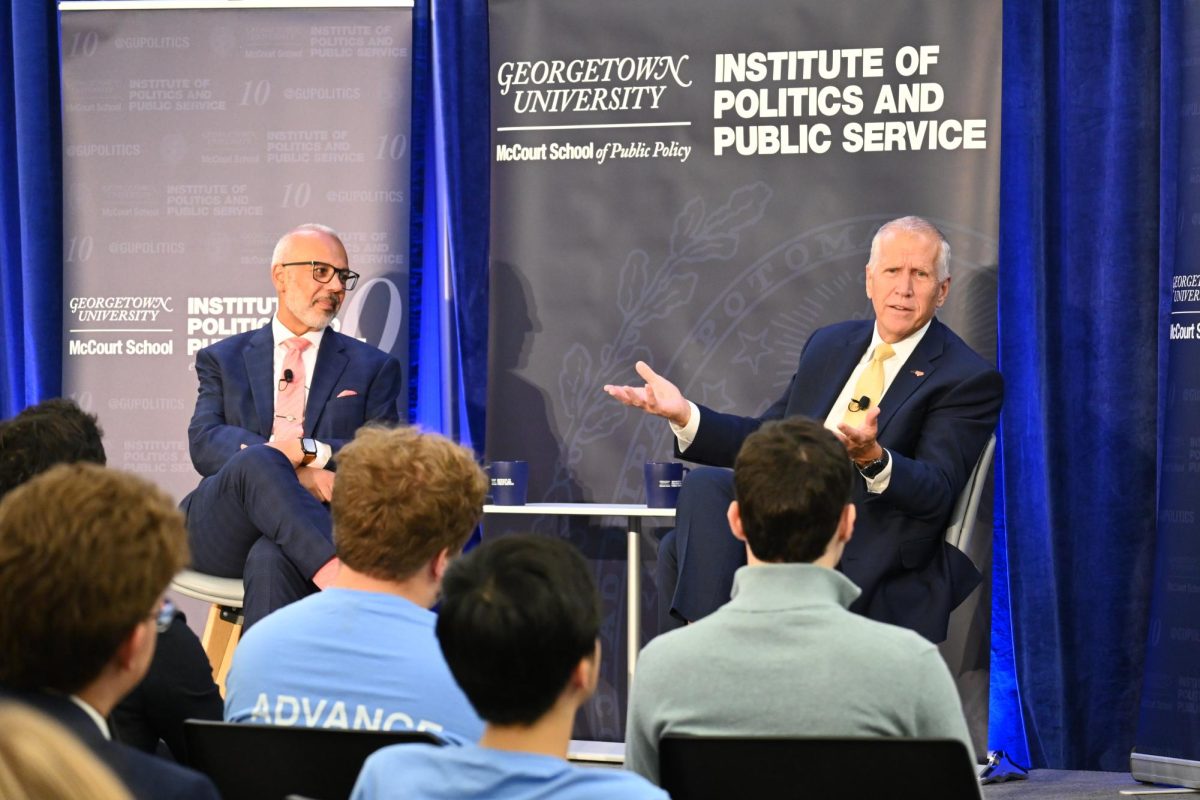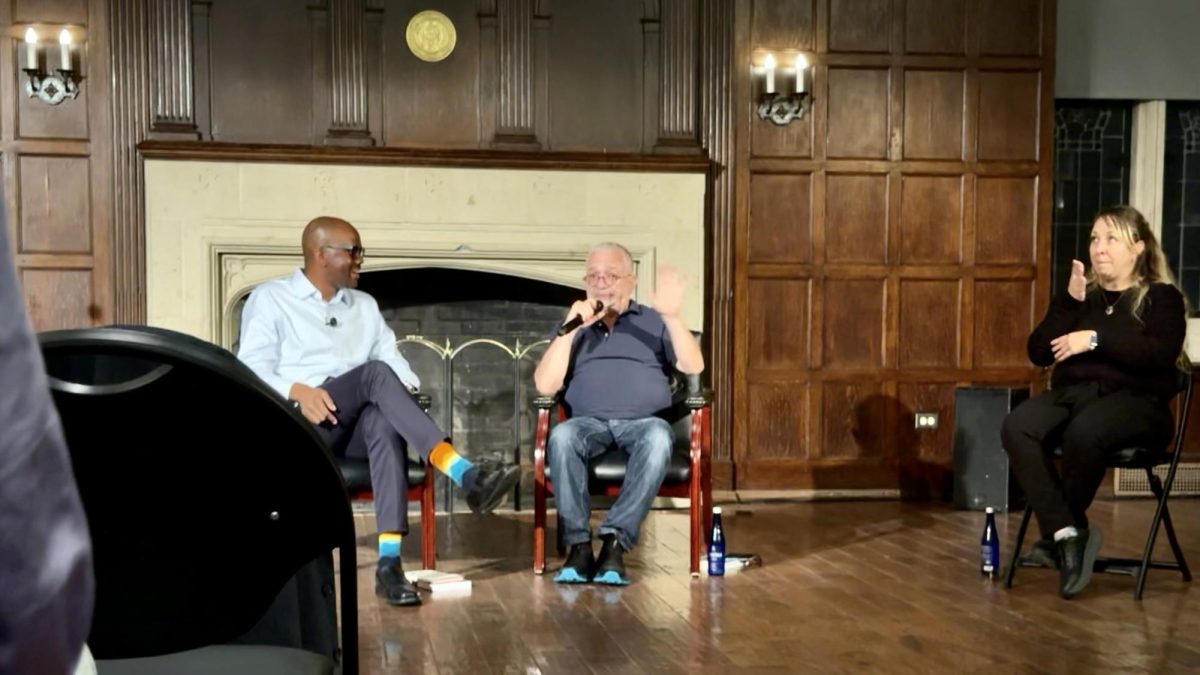A panel of four Georgetown University professors called for global solidarity and interdisciplinary action in the wake of shifts in migration patterns at a film screening and discussion series Feb. 5.
Georgetown’s African Studies Program (ASP), the Center for Contemporary Arab Studies (CCAS), the BMW Center for German and European Studies (CGES) — which conducts cultural research and teaching on modern Europe — and the Institute for the Study of International Migration (ISIM) — which studies social science and policy as it relates to migration — co-hosted the event, titled “‘Mare Nostrum’ and ‘The Present’ Screenings and Discussion.” The event is the first in the “Migration, Borders, Race” series whose future iterations will aim to connect the themes of migration, borders and race with the complex ways they interact on the global stage.
Rochelle Davis, an associate professor at the CCAS, said there are significant limitations to current global conceptions of borders.
“This system is not going to last forever, and we are moving things around these systems as if there were no more,” Davis said at the event. “All sorts of things move around these, and yet, we still keep people anchored to this idea of citizenship, and you have to have ‘this’ in order to cross.”
The event began with a screening of two short films. The first, a 2016 film titled “Mare Nostrum,” depicted the imagined backstory of a 6-year-old Syrian girl and her father before they attempt to flee to Europe via the Mediterranean Sea. The 2020 film “The Present” showed a Palestinian father and daughter’s tribulations as they attempted to buy a present for the man’s wife.
Coming amid new restrictions to U.S. migration policy under President Donald Trump and a recent vote in the German parliament to close the country’s land borders to undocumented migration, the panel connected the two films to recent policy changes.

Lahra Smith, an associate professor with the ASP, said “Mare Nostrum” offers a poignant description of the struggle to leave home and migrate to a new country.
“They describe this incredible darkness,” Smith said at the event. “Hearing people narratively describe what ‘not knowing’ is, putting your hands in the hands of a smuggler.”
Davis said “The Present” demonstrates the daily injustices and struggles of living as a Palestinian.
“One of the powerful messages I find from that film is how Palestinian existence and just day-to-day life and just making it through shopping and living is an act of resistance,” Davis said.
Katrin Sieg, director of the CGES, said there is a disconnect that disenfranchised individuals feel across the globe.
“People are governed, but they’re just passive objects of government — they have no democratic right, they have no human rights,” Sieg said.
Sieg added that “The Present” is a conceptual project that shows the fluidity of modern-day borders, specifically pointing to the checkpoint that the father and daughter must cross throughout their shopping trip.
“It showed to me, as a Europeanist, an instance where a border can be inside your country,” Sieg said. “In Europe, we have lots of invisible borders, where people are constantly racially profiled, they’re refugees or people who look different.”
Davis said there is a protectionist theme shown in both the films and current politics that many countries have been turning toward in their border policies in recent years.
“I just find certain leaders of the world and certain countries are getting more and more entrenched in this idea of who belongs and who can be there, where the world in other parts is exploding across borders in good ways,” Davis said.
Offering consolation to audience members concerned with restrictive border policies, Smith said hope is possible.
“There are the solidarities that are possible to be deepened in this time when we know who we can’t count on and who we can,” Smith said.







